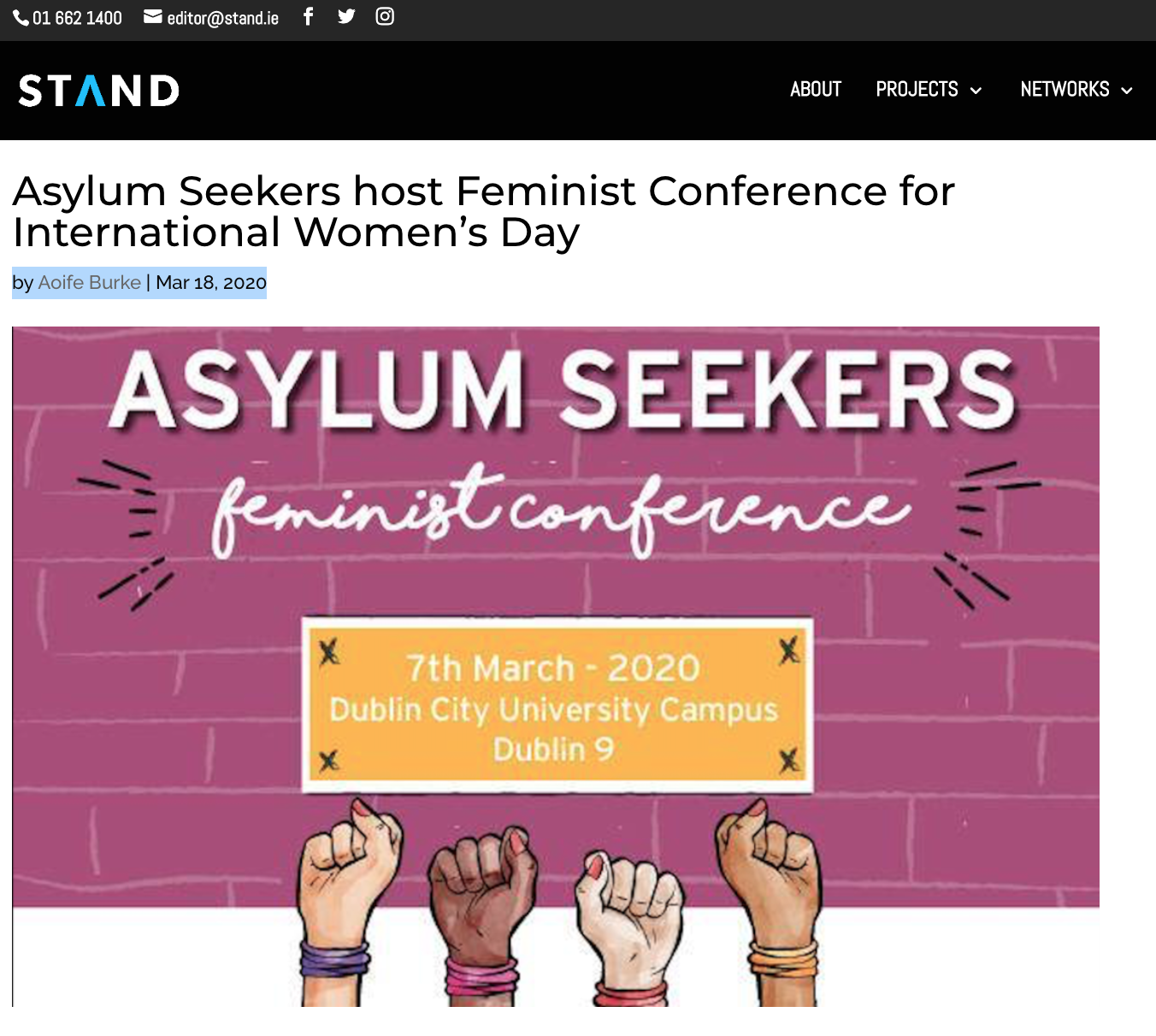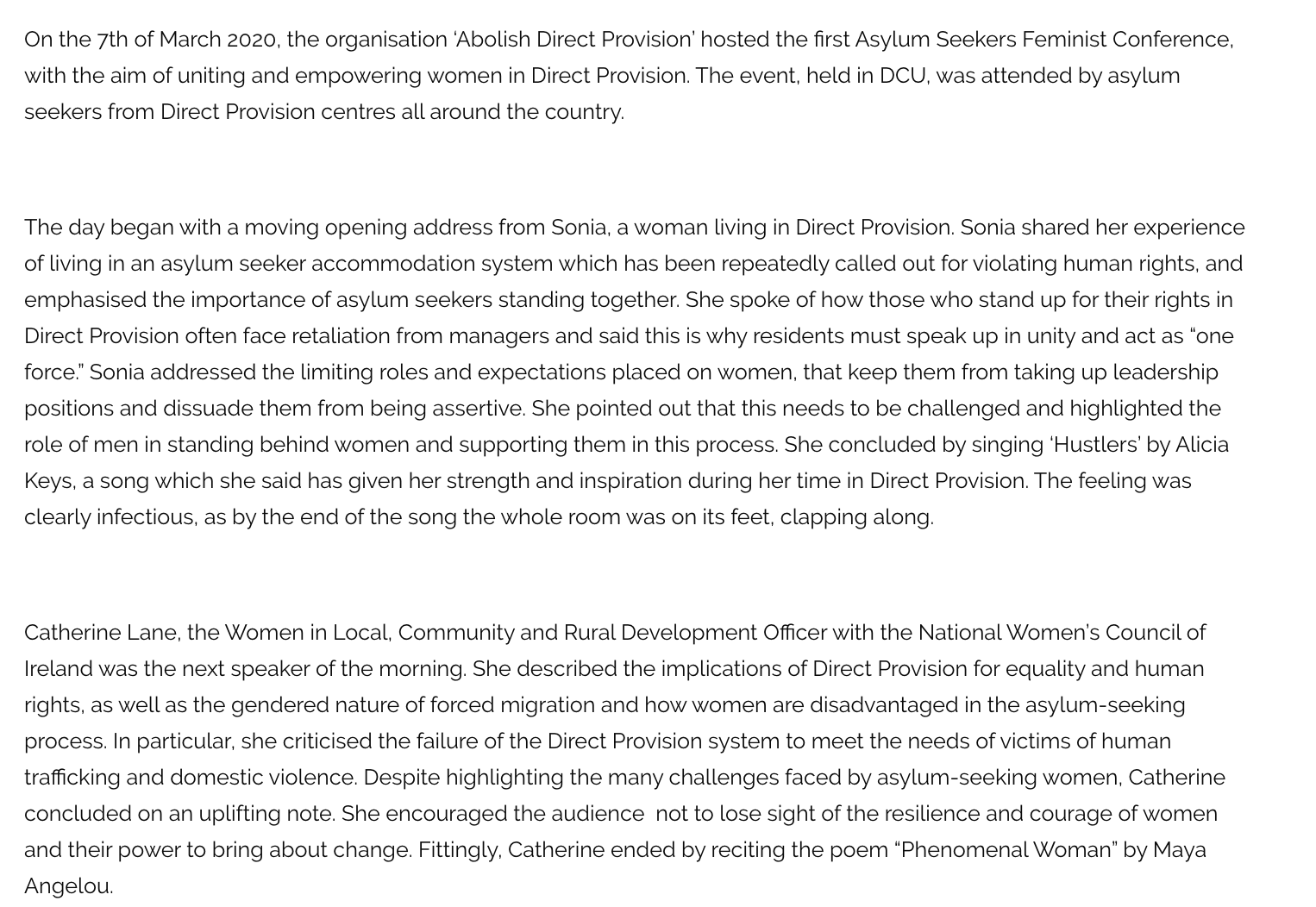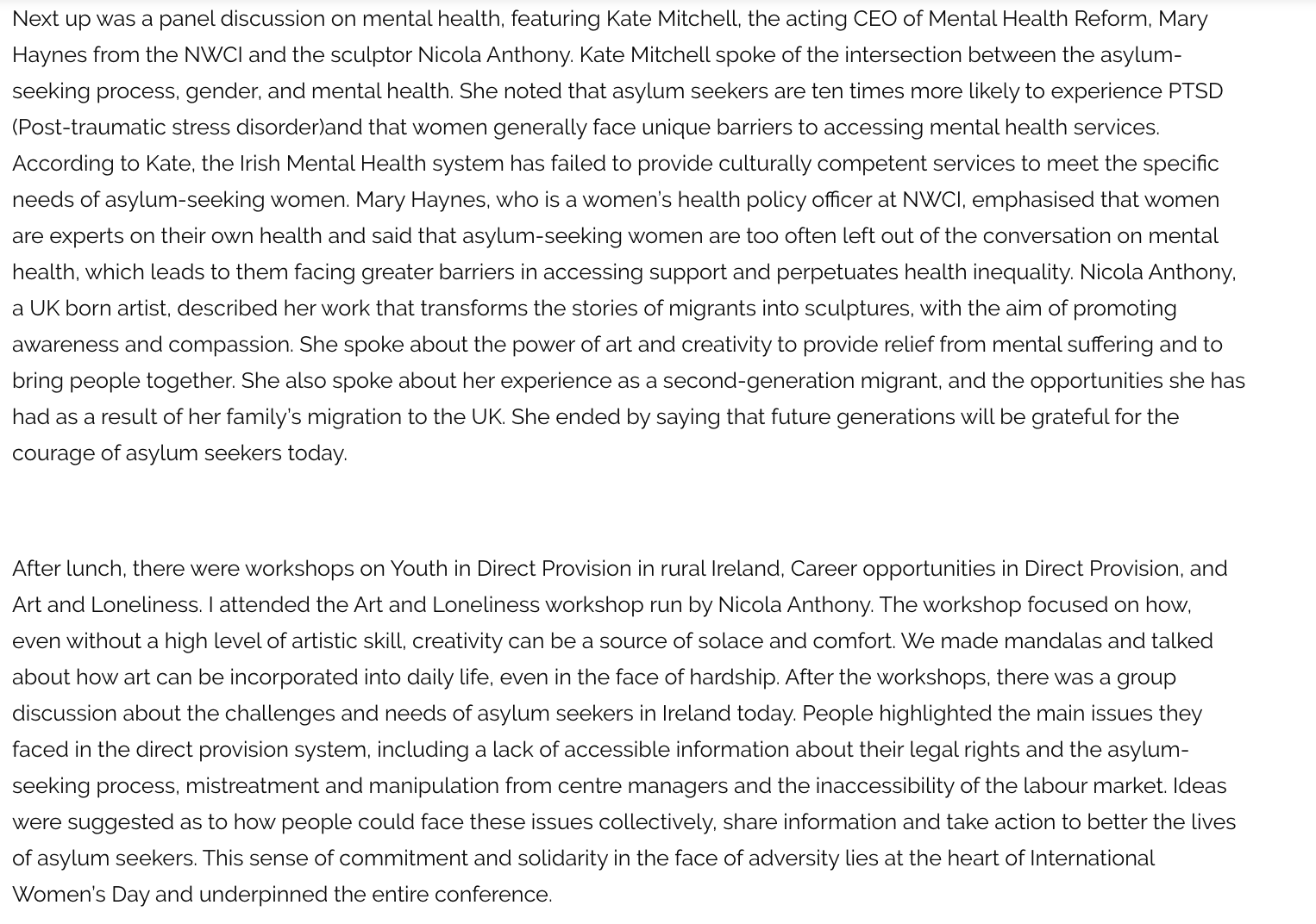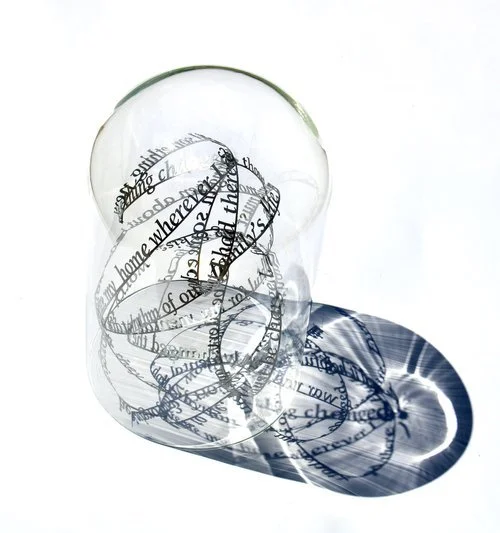Stand covers the events that took place at the Asylum Seekers Feminist Conference on International Women’s Day, including my workshop and panel discussion.
Article published on 18th March 2020 by Aoife Burke
Click here for online article or scroll down for plain text.
PLAIN TEXT:
Asylum Seekers host Feminist Conference for International Women’s Day
by Aoife Burke | Mar 18, 2020
On the 7th of March 2020, the organisation ‘Abolish Direct Provision’ hosted the first Asylum Seekers Feminist Conference, with the aim of uniting and empowering women in Direct Provision. The event, held in DCU, was attended by asylum seekers from Direct Provision centres all around the country.
The day began with a moving opening address from Sonia, a woman living in Direct Provision. Sonia shared her experience of living in an asylum seeker accommodation system which has been repeatedly called out for violating human rights, and emphasised the importance of asylum seekers standing together. She spoke of how those who stand up for their rights in Direct Provision often face retaliation from managers and said this is why residents must speak up in unity and act as “one force.” Sonia addressed the limiting roles and expectations placed on women, that keep them from taking up leadership positions and dissuade them from being assertive. She pointed out that this needs to be challenged and highlighted the role of men in standing behind women and supporting them in this process. She concluded by singing ‘Hustlers’ by Alicia Keys, a song which she said has given her strength and inspiration during her time in Direct Provision. The feeling was clearly infectious, as by the end of the song the whole room was on its feet, clapping along.
Catherine Lane, the Women in Local, Community and Rural Development Officer with the National Women’s Council of Ireland was the next speaker of the morning. She described the implications of Direct Provision for equality and human rights, as well as the gendered nature of forced migration and how women are disadvantaged in the asylum-seeking process. In particular, she criticised the failure of the Direct Provision system to meet the needs of victims of human trafficking and domestic violence. Despite highlighting the many challenges faced by asylum-seeking women, Catherine concluded on an uplifting note. She encouraged the audience not to lose sight of the resilience and courage of women and their power to bring about change. Fittingly, Catherine ended by reciting the poem “Phenomenal Woman” by Maya Angelou.
Next up was a panel discussion on mental health, featuring Kate Mitchell, the acting CEO of Mental Health Reform, Mary Haynes from the NWCI and the sculptor Nicola Anthony. Kate Mitchell spoke of the intersection between the asylum-seeking process, gender, and mental health. She noted that asylum seekers are ten times more likely to experience PTSD (Post-traumatic stress disorder)and that women generally face unique barriers to accessing mental health services. According to Kate, the Irish Mental Health system has failed to provide culturally competent services to meet the specific needs of asylum-seeking women. Mary Haynes, who is a women’s health policy officer at NWCI, emphasised that women are experts on their own health and said that asylum-seeking women are too often left out of the conversation on mental health, which leads to them facing greater barriers in accessing support and perpetuates health inequality. Nicola Anthony, a UK born artist, described her work that transforms the stories of migrants into sculptures, with the aim of promoting awareness and compassion. She spoke about the power of art and creativity to provide relief from mental suffering and to bring people together. She also spoke about her experience as a second-generation migrant, and the opportunities she has had as a result of her family’s migration to the UK. She ended by saying that future generations will be grateful for the courage of asylum seekers today.
After lunch, there were workshops on Youth in Direct Provision in rural Ireland, Career opportunities in Direct Provision, and Art and Loneliness. I attended the Art and Loneliness workshop run by Nicola Anthony. The workshop focused on how, even without a high level of artistic skill, creativity can be a source of solace and comfort. We made mandalas and talked about how art can be incorporated into daily life, even in the face of hardship. After the workshops, there was a group discussion about the challenges and needs of asylum seekers in Ireland today. People highlighted the main issues they faced in the direct provision system, including a lack of accessible information about their legal rights and the asylum-seeking process, mistreatment and manipulation from centre managers and the inaccessibility of the labour market. Ideas were suggested as to how people could face these issues collectively, share information and take action to better the lives of asylum seekers. This sense of commitment and solidarity in the face of adversity lies at the heart of International Women’s Day and underpinned the entire conference.
Overall the day highlighted that, while celebrating the hard-won freedoms many women in Ireland now experience, we must also recognise the women who have been left out of the process of liberalisation. There are thousands of women in Ireland today who are coercively confined in Direct Provision centres, where their needs are unmet and their rights are undermined. The lived experience of these women must be central to the progression of gender equality in this country.














